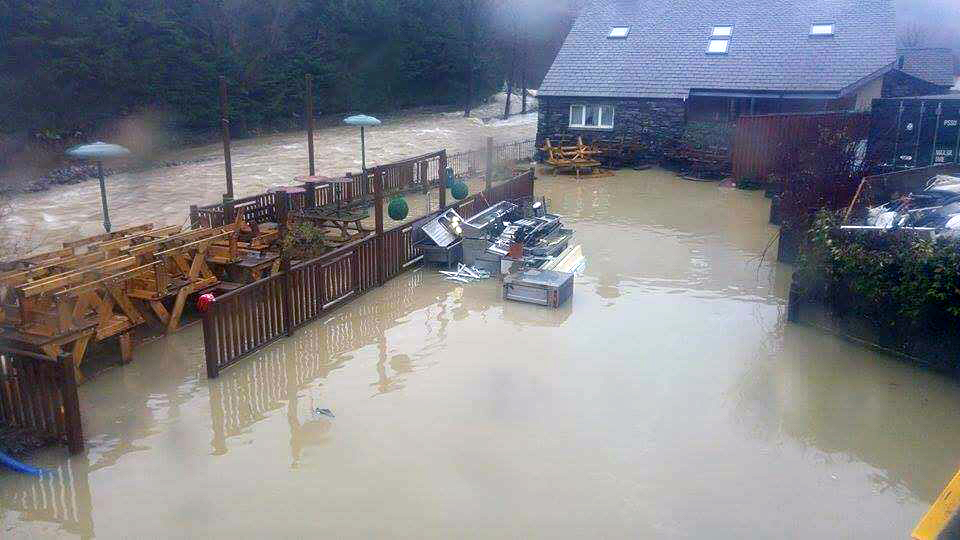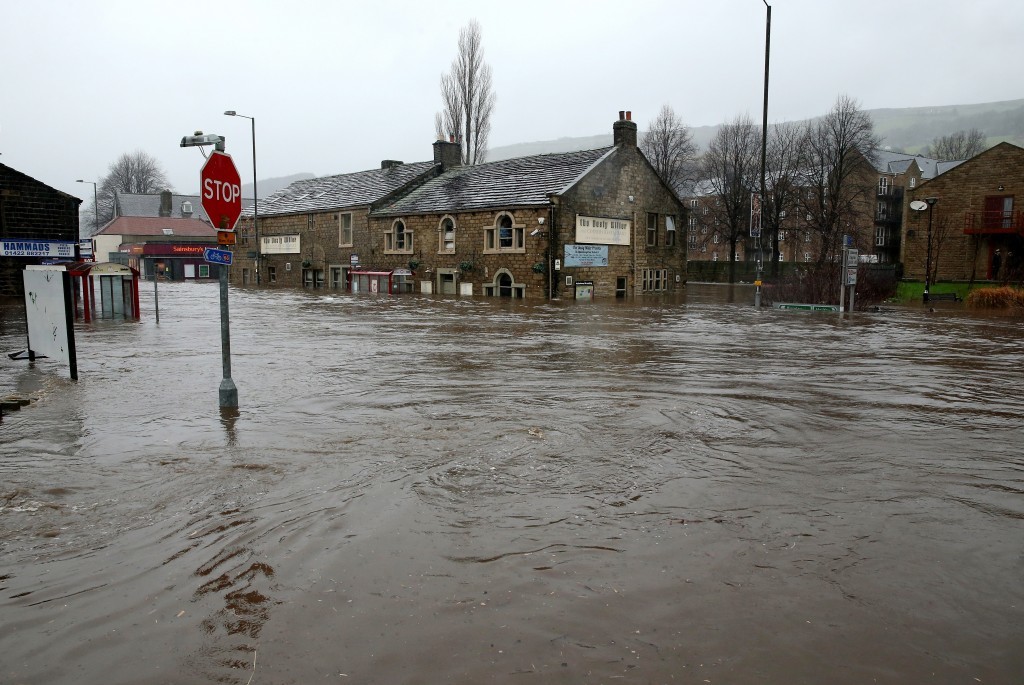
A “take action” weather alert is in place for parts of the county and the Environment Agency has issued seven severe flood warnings for the North West.
Residents in Whalley and Ribchester were told to abandon their houses when flood waters poured through the streets after torrential downpours.
Forecasters said up to 4.7ins (120mm) of rain could fall in some areas already saturated by wave after wave of winter squalls.
The average rainfall for the whole of December in the North West is 5.7ins (145mm) – so not far off a month’s rain could lash the region in hours.
The severe flood warnings – the EA’s highest level of warning – are for two locations on the River Ribble at Ribchester, three locations on the River Calder at Whalley and two on the River Wyre at St Michaels.
People are advised to move valuables and take advice from emergency services about evacuation.
Around 120 flood alerts and 145 warnings were also issued by the EA, mainly for the North West, North East and Wales.
The Government’s emergency Cobra committee met on Christmas Day while a company from the 2nd Battalion, Duke of Lancaster’s Regiment, helped committees across the North West build miles of temporary flood defences.
The EA said 85% of the country’s temporary flood barriers had been sent to Cumbria, where rainfall has smashed records, and the Lakeland region braced itself again ahead of the deluge.
In the Calderdale area, in West Yorkshire, roads turned into streams and riversas torrents off water poured off nearby fields and hillsides on to the groundbelow.
Cars queued on a main road near Bradford as drivers attempted to pass through deep standing water that had collected on the carriageway.
At Luddenden Foot, the River Calder and he Rochdale Canal had burst their banks, leaving a row of houses and a bowling club under water.
Signs in Halifax warned drivers that roads into Todmorden and Mytholmroyd were closed due to flooding. And near Mytholmroyd, a police car was stopping traffic on the A646 Burnley Road.
A yellow warning of rain was issued for parts of north Wales, northern England and southern Scotland.
Floods Minister Rory Stewart said that rainfall levels in the flood-hit areas were unprecedented.
“We’re looking potentially again today at maybe a month’s rainfall coming in a day. That’s falling on ground that’s very saturated. As the rain falls, the rivers respond very quickly,” he told the BBC Radio 4 Today programme.
“Certainly what we’ve seen is rainfall levels that nobody’s ever seen before.
“If somebody had said two years ago when we were designing these flood defences that we could get 13 inches of rain in a day, the answer from the engineers would have been ‘Why are you making that kind of prediction? We have never seen this before.’
“I think this is why people are right to start focusing on uncertainty and why people obviously are very interested in the question of climate change.”
In the Outer Hebrides, CalMac ferry sailings were cancelled for the day in North Uist and South Uist. Services have also been affected on Bute and the Isle of Lewis.
Traffic Scotland urged caution over surface water on the roads in the Fife and Lothian and Borders regions.

Enjoy the convenience of having The Sunday Post delivered as a digital ePaper straight to your smartphone, tablet or computer.
Subscribe for only £5.49 a month and enjoy all the benefits of the printed paper as a digital replica.
Subscribe